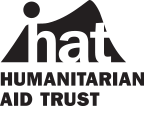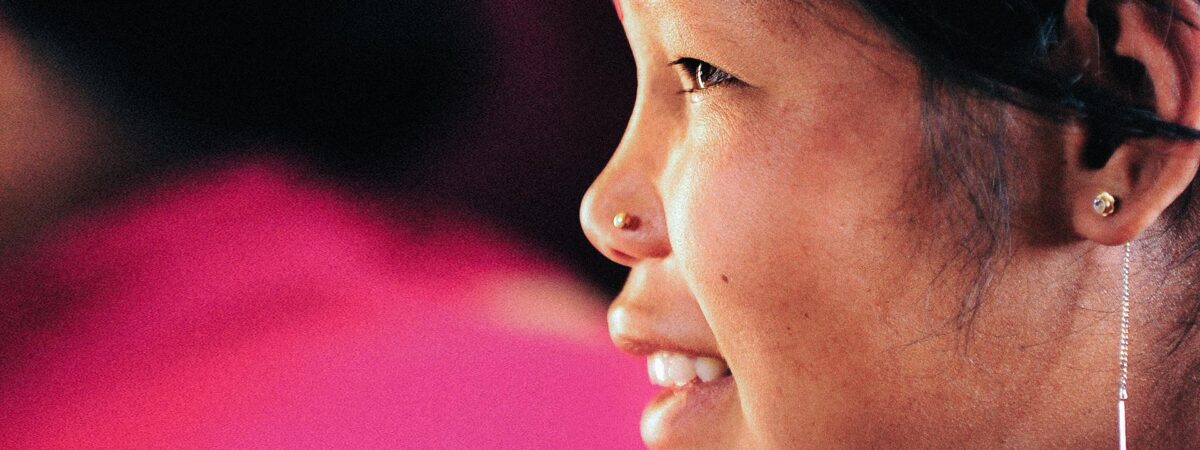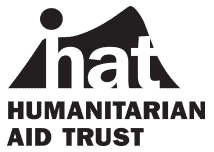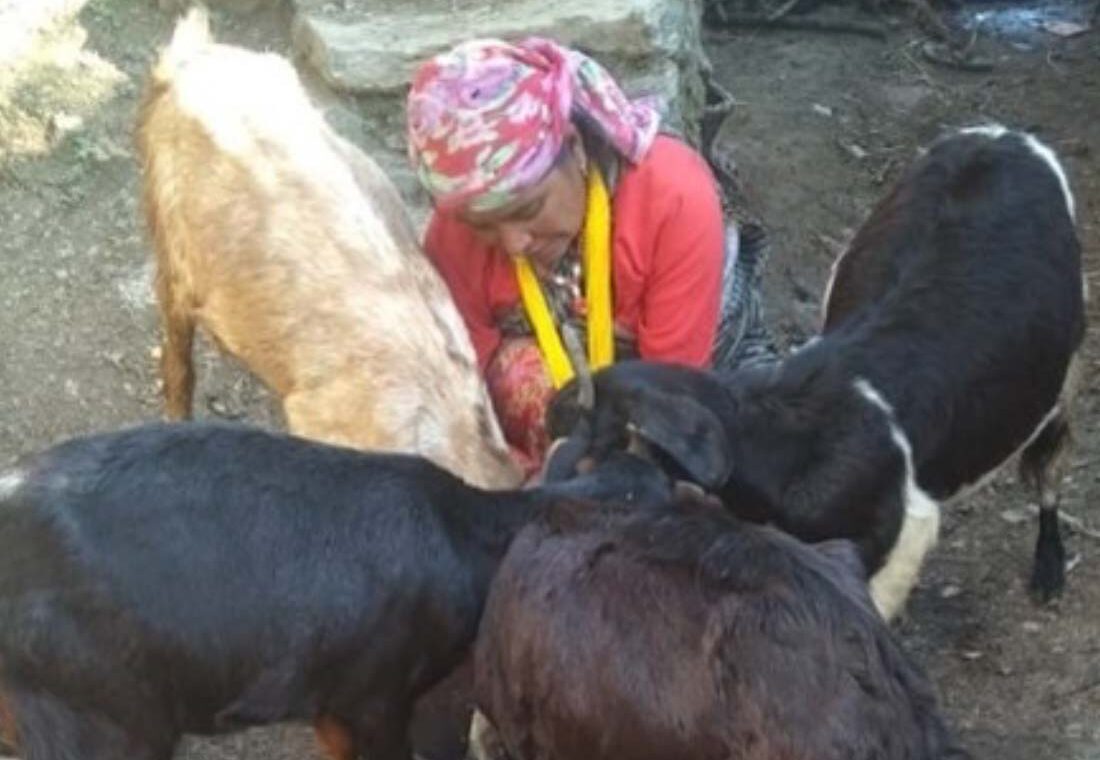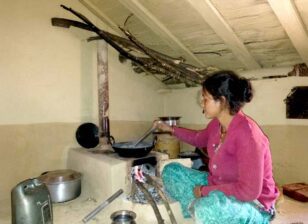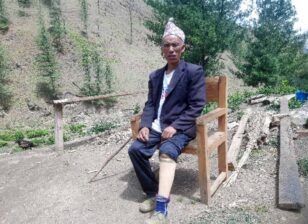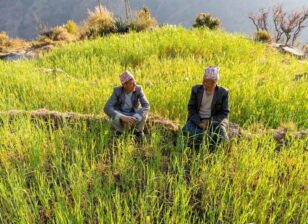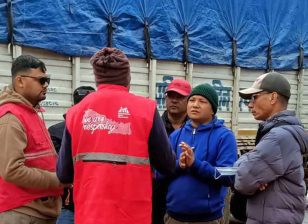Bajura Climate Change, Adaptation & Livelihood Project
Gaining Financial Independence through Goat Rearing
Forty-two years old, Ganga Lawar is from Dadatol in Bajura. Being a single mother, she shoulders the responsibility of her household with grace and strength. Ganga’s life took a difficult turn when her husband passed away six years ago due to illness while they were in India. Since then, she has been the sole breadwinner for her family and has been taking responsibility for her three daughters, all studying at the secondary level.
Returning to Nepal and to her village, Ganga faced the challenging task of managing the household and sustaining their livelihood. With just 0.06 Acre of farming land, most of it marginal, uneven and hilly, the prospect for earning through farming appeared grim. Recognizing the limitations of land-based income, she ventured into goat rearing, starting with just two goats.
Ganga joined the Ekitrit Lagani farmers group, where she actively participated in group activities and also made monthly savings. However, the intervention of INF Nepal’s Climate Change Adaptation and Livelihood Project into her community was the turning point for her and many others like her who were marginalized. Through active participation in the group, she became more integrated into her community. Her group, comprising of other members from dalit community including herself, was selected for support under the project. Through the project, Ganga gained access to training and resources related to modern goat farming practices. This involvement in the farmers group not only provided her with valuable support networks but also amplified her voice within her community, empowering her as a woman.
The training provided through the project not only enhanced her knowledge but also improved her skills as a livestock farmer, empowering her to manage her Goat farming more efficiently. With the initial grant support of Rs. 25,000 [USD 188] from the project, she further invested in her goat farming venture. Utilizing modern goat shed materials, and planting grass for the feed she ensured better care for her livestock. She later expanded her herd from two goats to ten goats, leveraging additional support from the provincial government for Dalit communities. By investing in goat rearing, she diversified her income streams and tapped into a sustainable livelihood option that suited her circumstances and skills.
The results were promising, Ganga sold several goats, earning a total of Rs. 60,000 [USD 450] to date. The initial grant enabled her to expand her goat farming venture, leading to increased income generation. With a steady source of revenue from goat sales, Ganga gained financial stability, allowing her to meet the needs of her household without relying solely on land-based income. This income not only supported her household expenses but also enabled her to invest in her eldest daughter’s education and cover other essential costs. As Ganga’s goat farming flourished, so did her confidence in her abilities. The success she achieved through the support of INF Nepal’s project boosted her self-esteem and motivated her to strive for further growth and success.
With the regular saving habits, Ganga has managed to save Rs. 22,000 [ USD 165] in her bank account. Today, Ganga’s life revolves around her thriving goat farming venture. With a newfound sense of financial security and stability, she faces each day with confidence, free from the uncertainties that once plagued her.
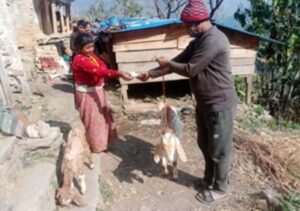
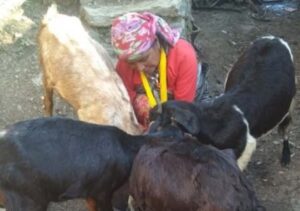
If you would like to support work that INF does in Bajura please click here
